DC Student Defense is a student defense firm servicing students across the country. Our experienced defense attorneys have successfully helped students combat online cheating accusations for years, and we are experienced with all types of allegations and dedicated to helping our clients take back their education and their future.
Online cheating violations for college students
Online Misconduct at Colleges
Online misconduct is any academic misconduct or other student misconduct prohibited by a school or university’s code of conduct that students conduct and/or engage in via the Internet.
This can include behavior during an online class, student conduct during online testing and exams as well as even interaction with other students even when students are not on campus.
College students frequently encounter specific alcohol-related violations, including:
- Cheating on online exams
- Plagiarism
- Title IX violations like sexual harassment during online classes or outside classes
- Disorderly conduct or inappropriate behavior / dress during online class
- Threats / inappropriate comments / bullying during online classes or outside classes
- Online impersonation
- Sharing someone’s personal information without their consent
What are the consequences for online misconduct?
Every school has different policies for different transgressions. These penalties may differ depending on your degree, your school, your behavioral history, and any number of other factors.
Unfortunately, many schools have not yet directly addressed the penalties or created a specific set of rules regarding online courses and technology-based learning.
Nonetheless, all schools do have existing student conduct codes and academic honesty, academic honor codes already in place, which means you will probably be expected to have assumed what is and is not allowed.
If you are found guilty of online misconduct, however, the penalties can be very severe.
Consequences can include any and all of the following:
- Verbal reprimand
- Written reprimand
- Failing grade (for the class or assignment)
- Dismissal from the course
- Academic, disciplinary, or athletic probation
- Loss of privileges (sports, clubs, etc.)
- Suspension
- Loss of scholarships
- Expulsion
What Our Clients Say
Our Online Cheating Violations Defense Process
STEP ONE:
Contact DC Student Defense if you’ve been accused of cheating online in your college classes.
STEP TWO:
If we’re a good fit, we’ll begin investigating your case, including any evidence provided by your college or university, such as emails, online activity logs, and the academic integrity policy of the school.
STEP THREE:
We’ll help you prepare for your school’s disciplinary process, which may include preparing a formal response to the accusation against you, attending a hearing or meeting with school officials, and then presenting your case.
Throughout this process, our attorneys will advocate for your rights, aiming to achieve the best possible outcome every step of the way.
Our Online Cheating Violations Defense Results
Successfully Defended a Law Student Accused of Online Cheating Facing Expulsion and Problems with Bar Exam
A third-year law student at a top-15-tier law school was accused of cheating on a take-home examination only weeks before graduation. DC Student Defense guided the student through understanding the potential consequences of being found responsible, including obstacles to be included on the Character & Fitness portion of the bar application in the future. Careful analysis of the allegations and forensic examination of our client’s electronic data allowed the student to mount a successful defense to avoid expulsion or suspension. We also provided legal guidance at the time the student had to complete the Character & Fitness portion of the bar application, including collaborating with a legal ethics expert. Upon learning of the successful resolution of the matter, that legal expert told our client: “You must have had some kind of miracle-worker lawyer helping you!”
Successfully Defended a Group of Chinese Foreign Students Accused of Cheating and Facing Expulsion
A group of Chinese foreign students were accused by other students, a teaching assistant, and their professor of collaborating during a proctored exam. We represented the entire group of students and helped prepare their defense through forensic analysis of the exam answer as well as analysis of the exam room’s physical set-up. As part of the defense, we helped the student present cultural issues, as well as potential racial discrimination concerns. The group went through multiple individual hearings.
Frequently Asked Questions
What are some examples of online misconduct I may not know about?
Online and technology-based courses are relatively new territory for students, teachers, and administrators alike. This means that until more specified rules are set into place regarding what is and is not allowed during class time, students may not even be aware of what professors consider cheating. Here are some of the sites / methods you may not know count as ways to cheat online and can subject you to accusations of academic misconduct, including cheating on your online final exam or test.
- Chegg
- Zoom private messages (your professor can read all these messages after class)
- Using your phone for any reason during an exam
- Collaborative work during testing time
What should I do if I have been accused of cheating online by my college or university?
If you’ve been accused of cheating on an online final exam or any other form of online misconduct, you’ll want to hire an attorney with experience working to defend students accused of cheating to advise you. You may or may not be able to bring this attorney to your student conduct hearing as your advisor, but a skilled attorney will help you strategize for the hearing and all other important meetings so that you are prepared for anything.
Here are some ways you can help your attorney organize your case before it even begins:
- Read the accusations against you carefully and speak with someone who can give you good advice and possibly help you pay for an attorney.
- Do not discuss the accusations against you to any other students on campus, including your friends.
- Do not reach out to the professor who’s accusing you (or anyone else on campus) to try to defend yourself until you’ve spoken to your attorney.
Does my college or university have a responsibility to define online cheating?
Yes, colleges and universities have a responsibility to clearly define what constitutes online cheating within their academic integrity policies. These definitions should be accessible to all students and outline specific behaviors that are considered violations, such as plagiarism, unauthorized collaboration, use of unauthorized resources during exams, and other forms of dishonest conduct. By providing clear guidelines, institutions help students understand the expectations and standards for academic honesty, which is crucial for maintaining fairness and integrity in the educational environment.
What are the most common types of academic dishonesty online?
The most common types of academic dishonesty online include plagiarism, where students copy or use someone else’s work without proper citation, and unauthorized collaboration, where students work together on assignments meant to be completed individually. Other frequent violations are using unauthorized resources during online exams, such as cheat sheets or internet searches, and submitting work that has been purchased or otherwise obtained from third parties. Additionally, impersonation, where someone else takes an exam or completes assignments on behalf of a student, is a serious form of online cheating.
What happens if I’m found responsible for online cheating and violating my college or university’s code of conduct?
If you are found responsible for online cheating and violating your college or university’s code of conduct, the consequences can vary depending on the institution’s policies and the severity of the offense. Potential penalties range from receiving a failing grade on the assignment or exam to failing the course. More severe sanctions can include academic probation, suspension, or even expulsion from the institution. Additionally, a record of academic dishonesty may be noted on your academic transcript, which could affect future educational and career opportunities. It’s crucial to understand the specific procedures and possible outcomes outlined in your institution’s code of conduct and to seek advice from a student defense attorney to navigate the process effectively.









